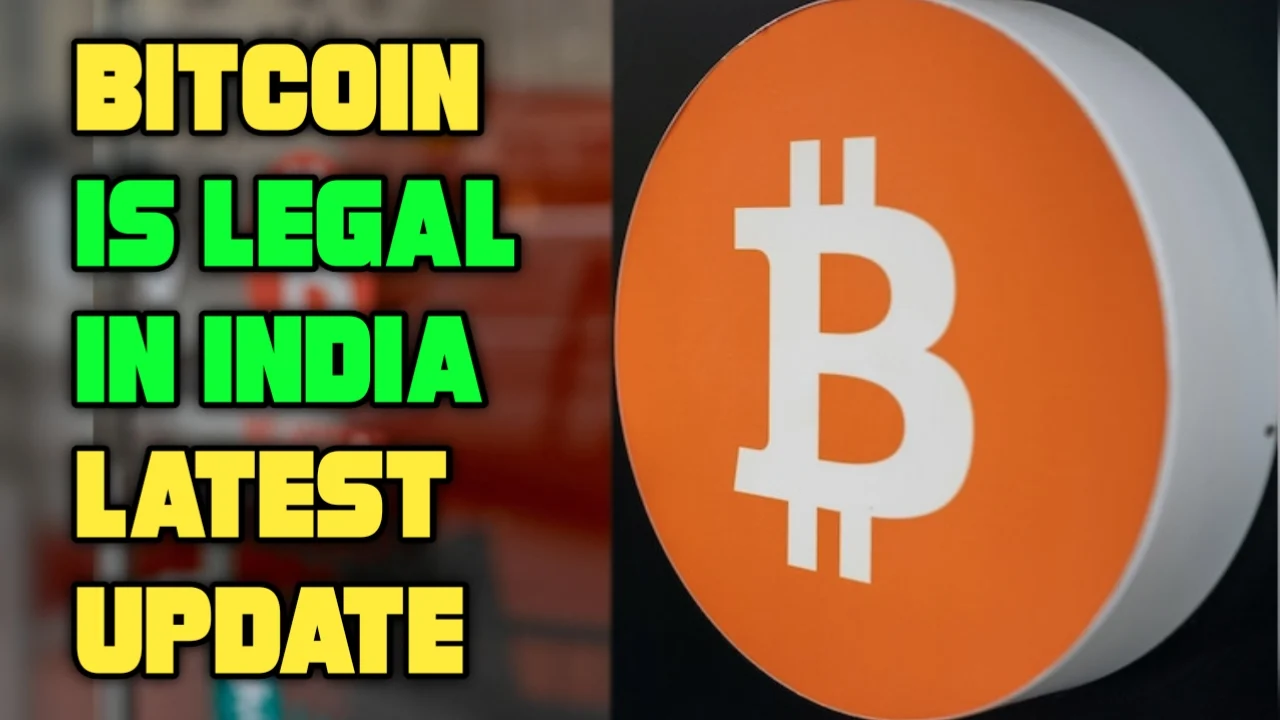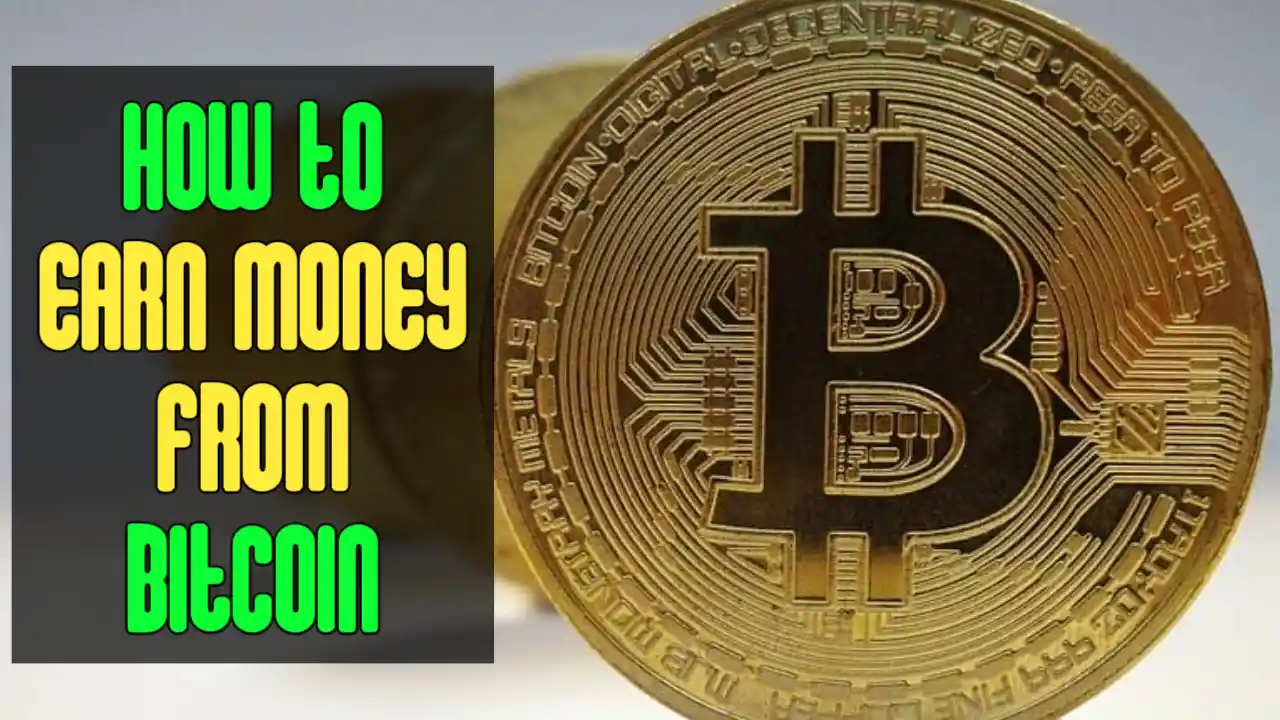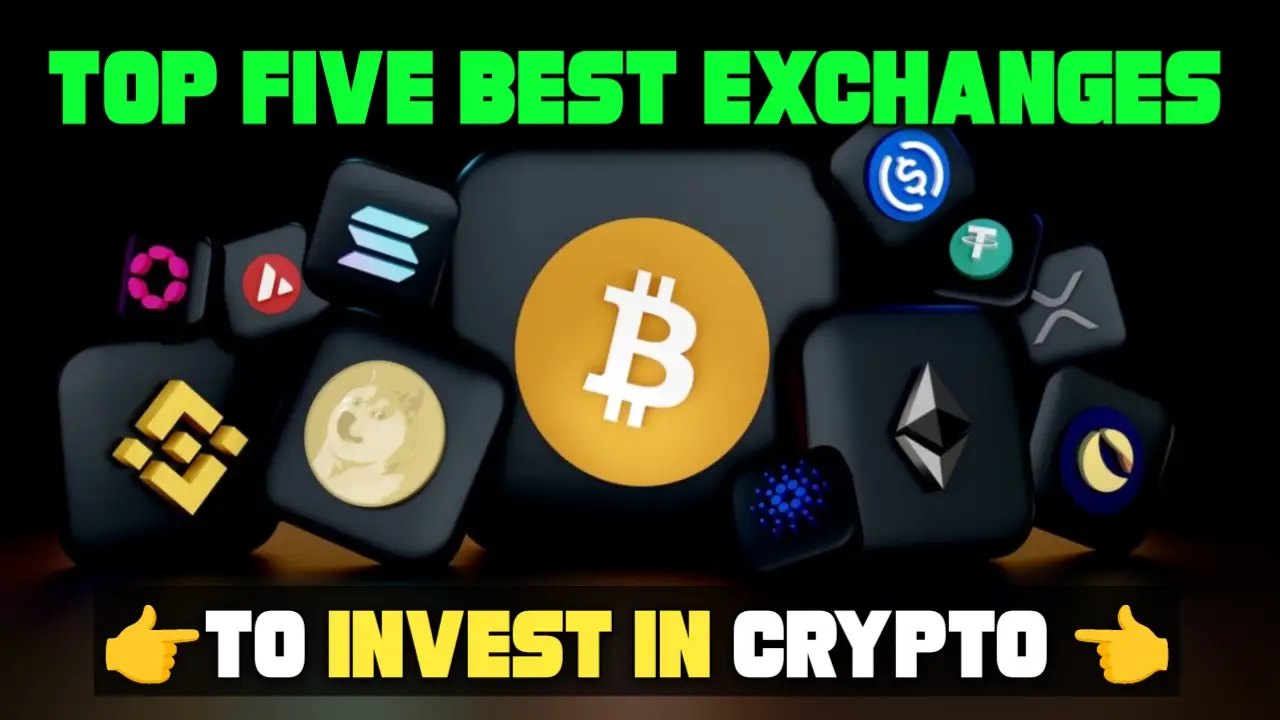WHAT IS JIO COIN: As of my last update in January 2025, there isn’t a widely recognized or established cryptocurrency specifically called “Jio Coin.” However, it’s possible that you’re referring to a concept or a coin associated with the Indian telecommunications giant Jio, which is owned by Reliance Industries.
There have been rumors and discussions over time about a potential digital or cryptocurrency initiative from Jio, especially in the context of India’s growing interest in blockchain and cryptocurrencies. However, as of now, there is no official cryptocurrency called “Jio Coin” that is widely available or recognized in the market.
If you are referring to something specific or more recent, I would recommend checking the latest updates and news sources for any new developments related to Jio and cryptocurrencies.
Some interesting information about Jio Coin
“Jio Coin” has generated interest over the years due to the association with Jio, a major player in India’s telecommunications sector. Here’s some interesting information and speculation surrounding the term “Jio Coin”:
1. Speculative Origins:
- Rumors and Speculations: The concept of a “Jio Coin” surfaced in 2017 after a report claimed that Reliance Industries, the parent company of Jio, was planning to launch its own cryptocurrency. This news sparked considerable speculation, and many began to wonder whether Jio Coin would be a game-changer in the Indian cryptocurrency landscape.
- Blockchain Technology: The rumors suggested that Jio Coin could be linked to blockchain technology, which Jio could leverage for various services like payments, smart contracts, and even supply chain management.
2. A Possible Digital Currency from Jio:
- Blockchain Projects: While there hasn’t been any official release of a cryptocurrency named Jio Coin, Reliance has shown interest in blockchain technology for business applications. Jio, in particular, is known for its innovative services and digital strategies, including digital payments, which could hint at future developments involving cryptocurrency or blockchain-based solutions.
- Regulatory Challenges: The Indian government’s stance on cryptocurrency has been uncertain and evolving. India had previously considered a cryptocurrency ban, though things have since shifted. If Jio were to launch its own cryptocurrency, it would need to comply with regulations in India and possibly around the world.
3. Partnerships with Crypto Players:
- There were speculations that Jio might collaborate with international cryptocurrency firms or financial institutions to launch a crypto-related project. However, no solid partnership or official announcement has been made.
4. Jio’s Digital Ecosystem:
- 5G and Digital Transformation: Jio has been at the forefront of India’s digital transformation, rolling out 4G and now focusing on 5G services. The company also offers a range of digital services such as Jio Money (a mobile wallet), JioCinema, and JioSaavn (music streaming). This robust digital ecosystem could serve as a foundation for integrating a cryptocurrency or digital token, allowing users to easily buy and sell goods or services using the Jio Coin.
5. Public Interest:
- There’s significant public interest in the idea of Jio Coin due to Jio’s large customer base in India, which is one of the largest and fastest-growing mobile markets in the world. If a Jio Coin were to be launched, it would have a potential user base of hundreds of millions of people.
6. Jio’s Parent Company – Reliance:
- Reliance Industries, the parent company of Jio, is one of the largest conglomerates in India with interests spanning oil, retail, and telecommunications. The company has made significant investments in technology and digital services, so it’s plausible that Reliance may eventually launch a digital currency or blockchain-based initiative.
7. Future Possibilities:
- Digital Payments: Jio Coin could potentially serve as a payment method for users within the Jio ecosystem or could be integrated into Jio’s vast services, like data plans, mobile wallets, or even its retail arm, Reliance Retail.
- India’s Crypto Landscape: While there has been some regulatory uncertainty around cryptocurrency in India, the interest in digital currencies remains high. If the Indian government moves toward regulation or legalization of cryptocurrencies, a company like Jio could be in a strong position to capitalize on the digital currency trend.
Certainly! Here’s a table summarizing the key points about Jio Coin:
| Aspect | Details |
|---|---|
| Name | Jio Coin |
| Parent Company | Reliance Industries (Jio is its telecom arm) |
| Launch Status | Not officially launched or confirmed yet (as of January 2025) |
| Rumored Launch Year | 2017 (Speculation started around this time) |
| Blockchain Technology | Speculated to use blockchain for digital transactions and other services |
| Purpose | Could serve as a cryptocurrency for digital payments, smart contracts, or within Jio’s ecosystem |
| Target Market | Jio’s extensive customer base in India (over 400 million users) |
| Services Potentially Affected | Digital payments, mobile services, entertainment, e-commerce, and more within Jio’s ecosystem |
| Regulatory Issues | Concerns about India’s stance on cryptocurrency, which could affect its launch |
| Notable Features | Rumored to enable fast transactions, low-cost payments, and possibly integration with Jio’s digital platforms |
| Market Impact | Could potentially disrupt India’s mobile payments and digital currency space if launched |
| Official Status | No official announcement or release from Reliance Industries or Jio |
This table summarizes the current understanding and speculation around Jio Coin. If it eventually launches, it could be part of Jio’s larger digital and telecom strategy.
Can Jio Coin become India’s Bitcoin?
While it’s speculative to predict the future of any cryptocurrency, there are a few factors to consider when evaluating whether Jio Coin could potentially become “India’s Bitcoin.” Below, I’ll provide an analysis based on the current understanding of both Bitcoin and Jio Coin:

Factors for Jio Coin to Become India’s Bitcoin
| Factor | Explanation |
|---|---|
| Adoption & User Base | Jio has over 400 million subscribers, which gives it a massive potential user base for Jio Coin. If the coin were integrated into Jio’s telecom, payment services, and digital platforms, it could see widespread use, potentially rivaling Bitcoin’s adoption in India. |
| Institutional Backing | Bitcoin is decentralized and not backed by any central entity. In contrast, Jio Coin, if developed, would be backed by Reliance Industries, a large and established business, which could provide trust and legitimacy for mainstream adoption. |
| Regulatory Environment | India’s regulatory stance on cryptocurrency has been unclear but is evolving. If the Indian government were to favor or regulate digital currencies, Jio Coin, being a product of a large Indian conglomerate, may have an advantage over decentralized cryptocurrencies like Bitcoin. However, Bitcoin’s decentralized nature allows it to withstand regulatory pressures. |
| Technological Infrastructure | Jio is at the forefront of India’s digital and telecom revolution, having already rolled out 4G and is in the process of launching 5G services. If Jio Coin were integrated into this infrastructure, it could benefit from high-speed internet access, wide mobile penetration, and the growing digital ecosystem, all of which would make it easier to adopt compared to Bitcoin. |
| Ease of Use | Jio Coin, being potentially tied to Jio’s mobile platform, could be much easier for users to access and use, especially for the millions of mobile-first Indians. Bitcoin, on the other hand, can sometimes be complex for new users, especially in terms of wallet setup, security, and transaction understanding. |
| Integration into Daily Life | Jio Coin could be embedded in day-to-day services like mobile payments, recharges, content subscriptions, and more, making it a practical digital currency for everyday transactions. Bitcoin, while used for payments, has not seen as much mainstream integration into daily Indian life, though this could change in the future. |
Challenges for Jio Coin to Become India’s Bitcoin
| Challenge | Explanation |
|---|---|
| Decentralization | Bitcoin is a decentralized, open-source cryptocurrency that gives users full control over their transactions and funds. Jio Coin would likely be centralized, being issued and managed by Reliance Industries. This could limit the appeal for users who value decentralization and the ethos of cryptocurrencies. |
| Market Trust | Bitcoin has established a long track record of security and trust among users globally. Jio Coin would need to build trust in its security and functionality. Users may remain skeptical about relying on a centralized cryptocurrency from a corporate entity. |
| Global Appeal | Bitcoin has become a global currency with widespread recognition and use. Jio Coin would likely be more regionally focused, primarily appealing to users within India or Jio’s ecosystem. For it to become India’s Bitcoin, it would need to overcome these geographical limitations. |
| Volatility | If Jio Coin were to be pegged or regulated by Reliance, it might be more stable but could lose the price growth potential of Bitcoin. To compete with Bitcoin, Jio Coin would need to find a balance between volatility and stability. |
| Regulatory Risks | While the Indian government may regulate Jio Coin, it could impose restrictions on its use or integrate it into the broader financial system in a way that limits its freedom as a digital currency. Bitcoin’s decentralized nature makes it more resilient to regulatory challenges. |
| Innovation and Use Cases | Bitcoin is a store of value and a means of transferring wealth globally, whereas Jio Coin might be primarily used within India and for specific services within the Jio ecosystem (e.g., telecom recharges, digital payments). For Jio Coin to rival Bitcoin, it would need to offer innovative use cases that extend beyond what Jio’s services currently offer. |
Predictions for Jio Coin:
- Short-Term: Jio Coin may initially find success as a digital token or payment method integrated into the Jio ecosystem, including mobile plans, subscriptions, and digital content.
- Medium-Term: It could expand into a more widely accepted digital currency within India, especially if the government regulates cryptocurrencies favorably. It might also be used for cross-border remittances or payments in emerging markets where Jio operates.
- Long-Term: To rival Bitcoin, Jio Coin would need to overcome its centralized nature and establish itself as a global player, possibly through strategic partnerships or innovations in the blockchain and crypto space.
In conclusion, Jio Coin might not become India’s “Bitcoin” in the purest sense (as Bitcoin is decentralized and global), but it could certainly become a significant national digital currency—especially if integrated deeply into India’s digital economy. Its success would largely depend on regulatory support, adoption rates, and its ability to offer valuable services beyond traditional cryptocurrencies like Bitcoin.
What are the advantages and disadvantages of Jio Coin?
Advantages of Jio Coin
- Large User Base:
- Advantage: Jio has over 400 million subscribers in India, giving Jio Coin the potential to be adopted quickly within a vast network of mobile users. If Jio Coin integrates with Jio’s existing digital services, it could seamlessly reach a large audience.
- Integration with Jio’s Digital Ecosystem:
- Advantage: Jio Coin could be directly integrated into Jio’s existing services like telecom recharges, mobile wallets (JioMoney), entertainment platforms (JioCinema, JioSaavn), and more. This creates convenience for users by allowing them to use Jio Coin for various daily transactions within the Jio ecosystem.
- Trusted Corporate Backing:
- Advantage: Jio Coin would be backed by Reliance Industries, a major Indian conglomerate. This can inspire confidence in users who may be wary of the volatility and risks associated with decentralized cryptocurrencies like Bitcoin.
- Potential for Low-Cost Transactions:
- Advantage: Jio Coin could offer lower transaction fees compared to traditional banking systems or other forms of digital payment. This would benefit users in India, where access to affordable digital finance is essential.
- Access to Telecom-Driven Infrastructure:
- Advantage: Jio has already invested heavily in high-speed internet and 5G technology, making it well-positioned to integrate a digital currency within the evolving telecom infrastructure. This could enable fast, efficient transactions for users even in rural or remote areas.
- Faster Adoption in India:
- Advantage: Due to Jio’s wide reach and its position as a market leader in India’s telecom industry, Jio Coin could be more easily adopted compared to international or lesser-known cryptocurrencies.
- Government and Regulatory Alignment:
- Advantage: Jio, being a large Indian corporation, is more likely to comply with local regulations, which could make Jio Coin easier to launch in India compared to decentralized cryptocurrencies like Bitcoin, which may face regulatory hurdles.
Disadvantages of Jio Coin
- Centralized Control:
- Disadvantage: Unlike Bitcoin, which is decentralized and gives users full control over their funds, Jio Coin would likely be centralized. This means that Reliance Industries would control the supply and transaction process, reducing the degree of financial autonomy for users.
- Limited Global Adoption:
- Disadvantage: Jio Coin would most likely be designed for use within India or within Jio’s ecosystem, limiting its use on a global scale. Bitcoin, on the other hand, is widely accepted internationally as a store of value and means of exchange.
- Regulatory Risk:
- Disadvantage: Although Jio Coin may be more easily accepted in India due to the backing of a large corporation, it could still face government scrutiny or be subject to changing regulatory policies. If the Indian government imposes restrictions on cryptocurrencies, it could impact the use and success of Jio Coin.
- Lack of Financial Privacy:
- Disadvantage: Being a centralized cryptocurrency, Jio Coin may involve more financial surveillance than decentralized options like Bitcoin. This could be a concern for users who prioritize privacy and anonymity in their transactions.
- Volatility vs Stability:
- Disadvantage: While Bitcoin has seen significant price volatility, it has also experienced large price gains. Jio Coin, as a centralized coin, might be subject to greater price stabilization efforts by Reliance, reducing the opportunity for large returns or fluctuations that some cryptocurrency investors enjoy.
- Dependency on Jio’s Ecosystem:
- Disadvantage: Jio Coin could become more useful for customers who are deeply embedded in the Jio ecosystem (e.g., using Jio’s mobile plans, entertainment, or digital services). However, users who are not already part of Jio’s ecosystem might find it less appealing or practical.
- Competition from Established Cryptocurrencies:
- Disadvantage: Jio Coin would face strong competition from established cryptocurrencies like Bitcoin, Ethereum, and others. These currencies have a loyal user base and are already used for a wide variety of applications beyond simple payments, making it challenging for Jio Coin to carve out its own niche.
- Technical Barriers for Non-Tech-Savvy Users:
- Disadvantage: Despite the ease of use offered by Jio’s infrastructure, there may still be a learning curve for non-tech-savvy users, especially when dealing with digital wallets and cryptocurrencies, even if Jio Coin aims to simplify the process.
Summary
| Advantages | Disadvantages |
|---|---|
| Large user base with over 400 million subscribers | Centralized control, reducing user autonomy |
| Seamless integration within Jio’s digital ecosystem | Limited global adoption and focus on India |
| Backed by a trusted corporate entity (Reliance) | Regulatory risks in India and potential government scrutiny |
| Lower transaction fees compared to traditional methods | Privacy concerns due to centralized tracking |
| Strong telecom infrastructure for seamless transactions | Reduced volatility potential compared to Bitcoin |
| Faster adoption in India due to Jio’s reach | Reliant on Jio’s ecosystem for broader utility |
| Potential for collaboration with government for regulation | Competition from established cryptocurrencies like Bitcoin |
Ways to earn money from Jio Coin
If Jio Coin were to launch and become a functional cryptocurrency, there would likely be several ways to earn money from it, especially considering its integration with the existing Jio ecosystem. However, it’s important to note that Jio Coin has not yet been officially released, and much of this information is speculative. Based on the potential features and the way cryptocurrencies generally work, here are some ways you could possibly earn money from Jio Coin:
1. Holding (HODLing) Jio Coin as an Investment
- How It Works: Similar to Bitcoin or other cryptocurrencies, you could buy and hold Jio Coin with the hope that its value increases over time. If Jio Coin gains popularity and sees adoption, its price may rise, allowing you to sell it for a profit later.
- Potential Risk: Cryptocurrencies can be volatile, so there is no guarantee of price appreciation. In fact, prices may decrease depending on demand, regulatory developments, and market conditions.
2. Participating in Jio Coin Staking or Earning Interest
- How It Works: If Jio Coin operates on a proof-of-stake (PoS) or similar system, you may be able to stake your coins to earn rewards in the form of additional Jio Coin. Staking is when you lock up a certain amount of coins in a wallet to help support the network, and in return, you earn interest or more Jio Coins.
- Potential Risk: There may be risks of losing staked coins if the network is compromised or if staking is not managed correctly. The rewards can also be highly variable.
3. Using Jio Coin for Everyday Transactions (Earn Discounts)
- How It Works: As Jio Coin would likely be integrated into Jio’s ecosystem (mobile services, entertainment, digital payments), you could potentially earn Jio Coins by using it for everyday purchases. This could include buying data plans, subscriptions to JioCinema or JioSaavn, or making payments in Jio’s retail stores.
- Potential Risk: While you earn Jio Coins by spending, it’s important to consider that if the coin doesn’t appreciate in value, or if you spend too much of it, your overall wealth might not grow.
4. Mining Jio Coin (If PoW or Hybrid Consensus Model)
- How It Works: If Jio Coin uses a proof-of-work (PoW) model or a hybrid consensus mechanism (e.g., combining proof-of-work with proof-of-stake), you could mine Jio Coin by using computational resources (computers or specialized mining rigs) to solve complex mathematical problems. Miners are rewarded with coins for validating transactions and securing the network.
- Potential Risk: Mining can be resource-intensive and expensive, requiring powerful hardware and large amounts of electricity. If mining rewards are not high enough, the costs may outweigh any earnings.
5. Participating in Jio Coin Airdrops or Promotions
- How It Works: Many cryptocurrency projects distribute free tokens through airdrops or promotional events to incentivize adoption. If Jio Coin launches such a campaign, you could receive free Jio Coins by signing up for the platform, referring others, or completing certain tasks (e.g., engaging with Jio services or apps).
- Potential Risk: Airdrops and promotions may have conditions that limit how much you can earn or how you can use the coins. There is also the risk of scams if the project is not legitimate.
6. Selling Jio Coin for Traditional Currency or Other Cryptocurrencies
- How It Works: Once Jio Coin is launched and available on cryptocurrency exchanges, you could potentially sell it for other cryptocurrencies or fiat currency (like Indian Rupees, US Dollars, etc.). If the value of Jio Coin increases, you can sell it for a profit.
- Potential Risk: If Jio Coin’s value decreases, you could end up selling at a loss. Additionally, market liquidity and the presence of exchanges could limit your ability to easily exchange Jio Coin.
7. Affiliate Programs or Referral Bonuses
- How It Works: Jio could potentially offer affiliate programs or referral bonuses for users who refer others to buy, use, or participate in the Jio Coin ecosystem. You might earn Jio Coins for bringing new users or for actions that other users take within the ecosystem (e.g., signing up for Jio services).
- Potential Risk: Referral bonuses often depend on specific actions (e.g., the referred user making a purchase), so there is no guarantee of earning money through referrals.
8. Leveraging Jio Coin in Decentralized Finance (DeFi) or Yield Farming
- How It Works: If Jio Coin becomes part of the DeFi (Decentralized Finance) ecosystem, you may be able to lend or use it in yield farming strategies. In this case, you could earn interest or additional coins by lending your Jio Coins to other users or by providing liquidity to decentralized exchanges (DEXs).
- Potential Risk: DeFi and yield farming come with significant risks, such as impermanent loss, smart contract bugs, and potential security vulnerabilities.
9. Earning Through Jio Coin-Based Games or Gamification
- How It Works: Jio could integrate Jio Coin into gaming or reward systems, where users can earn coins by playing games, completing challenges, or participating in special events. This could also include rewards for social media engagement or app usage.
- Potential Risk: Earnings from gamification depend on active participation and may not provide substantial returns if the rewards system is not generous or if it is too competitive.
10. Building or Participating in Jio Coin-Related Projects
- How It Works: If Jio Coin is integrated into a broader blockchain platform or ecosystem, developers might be able to build decentralized applications (dApps) or services that leverage Jio Coin. By doing so, they could earn coins through transaction fees or by providing valuable services.
- Potential Risk: Developing projects in emerging ecosystems can be highly speculative. The success of such projects depends on user adoption, platform stability, and market conditions.
Summary of Earning Methods
| Method | Description | Risk/Challenge |
|---|---|---|
| Holding (HODLing) | Buy and hold Jio Coin for price appreciation | Market volatility and no guaranteed price increase |
| Staking or Earning Interest | Stake Jio Coin to earn rewards | Potential loss of staked coins, varying reward rates |
| Using Jio Coin for Transactions | Earn Jio Coins by spending within Jio’s ecosystem | Value may not appreciate if spent too quickly |
| Mining (if PoW) | Mine Jio Coin through computational power | High electricity and hardware costs, uncertain rewards |
| Airdrops or Promotions | Receive free Jio Coins through promotions or airdrops | Limited quantity, conditional, or potentially scammy |
| Selling for Fiat or Other Cryptos | Sell Jio Coin for other cryptocurrencies or fiat | Potential loss if market value decreases |
| Affiliate or Referral Bonuses | Earn Jio Coins by referring new users | Depends on referrals’ actions or success |
| DeFi or Yield Farming | Participate in DeFi services or provide liquidity to earn rewards | High-risk activities in volatile markets |
| Gaming or Gamification | Earn Jio Coins through in-app games or activities | Earnings might be minimal or require significant time |
| Building or Developing dApps | Develop or use Jio Coin for decentralized applications | Requires technical knowledge, uncertain market demand |
How to invest money in Jio Coin
As of now, Jio Coin has not been officially launched by Reliance Industries or Jio, and there are no official platforms or methods to invest in it. However, if Jio Coin were to be launched in the future, there could be several ways to invest in it, similar to how people invest in other cryptocurrencies. Below is a hypothetical guide based on how one would typically invest in cryptocurrencies and how you might approach investing in Jio Coin once it’s available:
1. Stay Updated on Jio Coin’s Launch
- What You Should Do: First, you would need to keep an eye on any official announcements regarding the launch of Jio Coin. This could include news from Reliance Industries, Jio, or other credible sources.
- Where to Get Information: Follow Jio’s official social media accounts, news websites, or cryptocurrency platforms for updates on the launch. You can also track updates from Indian regulators who may provide clarity on the legal status of Jio Coin.
2. Set Up a Digital Wallet
- What You Should Do: If Jio Coin follows a cryptocurrency model similar to Bitcoin or Ethereum, you would need a digital wallet to store your coins. This wallet could be software-based, hardware-based, or exchange-based.
- Types of Wallets:
- Hot Wallets (Software wallets): Apps or online platforms that store your Jio Coin and allow easy access to your funds for quick transactions.
- Cold Wallets (Hardware wallets): Physical devices that store your Jio Coin offline, offering greater security.
- Exchange Wallets: Provided by exchanges like Binance, Coinbase, or any platform that lists Jio Coin, but this may be less secure than cold wallets.
3. Monitor Cryptocurrency Exchanges
- What You Should Do: If Jio Coin is listed on a cryptocurrency exchange, you would need to create an account on that platform to buy and trade Jio Coin.
- Popular Cryptocurrency Exchanges: Platforms such as Binance, Coinbase, WazirX (popular in India), Kraken, or Bitfinex may list Jio Coin, allowing you to buy it using fiat currencies (like Indian Rupees) or other cryptocurrencies (like Bitcoin or Ethereum).
- Steps to Buy on an Exchange:
- Sign up: Create an account on the exchange and complete any required KYC (Know Your Customer) procedures.
- Deposit Funds: Deposit INR (Indian Rupees) or other cryptocurrencies into your account.
- Buy Jio Coin: Once the coin is available, search for it on the exchange and execute your buy order.
4. Participate in Jio Coin Airdrops or ICO (Initial Coin Offering)
- What You Should Do: Sometimes, new cryptocurrencies are launched through airdrop or ICO (Initial Coin Offering) events, where tokens are distributed to early adopters. If Jio Coin follows this model, you could potentially get free coins or invest early by purchasing them at a discounted price before the coin is fully available on exchanges.
- Steps to Participate:
- Follow the Official Announcement: Jio could announce an ICO or airdrop on its official channels.
- Register for the Airdrop or ICO: Provide your details and follow the instructions to receive or purchase Jio Coin.
- Be Cautious: ICOs and airdrops can sometimes be risky. Ensure that you’re participating in a legitimate event to avoid scams.
5. Buy Jio Coin from Peer-to-Peer (P2P) Marketplaces
- What You Should Do: If Jio Coin is not listed on exchanges but is available in peer-to-peer (P2P) marketplaces, you could buy it directly from other users.
- P2P Marketplaces: Platforms like LocalBitcoins or WazirX P2P allow users to buy and sell cryptocurrencies directly with each other, using various payment methods.
- Steps to Buy on P2P:
- Find a Trusted Seller: Choose a trusted user with a good reputation.
- Negotiate the Price: Agree on a price and payment method.
- Complete the Transaction: Once the payment is made, the Jio Coin will be transferred to your wallet.
6. Invest in Jio Coin Mining (If Applicable)
- What You Should Do: If Jio Coin operates on a proof-of-work (PoW) or hybrid model (similar to Bitcoin), you could potentially mine Jio Coin by using specialized mining hardware.
- How Mining Works: You would need to invest in mining equipment (computational power) to help validate transactions on the network, for which you would receive Jio Coins as rewards.
- Potential Challenges: Mining can be resource-intensive, requiring substantial energy and hardware investment. Also, mining rewards can vary based on network difficulty and the number of miners.
7. Keep an Eye on Jio Coin’s Regulatory Landscape
- What You Should Do: Since India’s regulatory environment for cryptocurrencies is evolving, you need to stay updated on any legal restrictions or regulations related to Jio Coin. This could affect its availability and the ability to buy, sell, or use the coin.
- Government Actions: Watch for any updates from the Reserve Bank of India (RBI) or Securities and Exchange Board of India (SEBI) regarding Jio Coin and cryptocurrencies.
8. Diversify Your Portfolio
- What You Should Do: Like any investment, it’s advisable to diversify. Rather than investing all your money in Jio Coin, consider holding a combination of Jio Coin and other established cryptocurrencies (like Bitcoin, Ethereum, or Ripple) to reduce risk.
- Balanced Strategy: Diversification helps protect your investment if Jio Coin’s value fluctuates or if the project faces challenges.
FAQs –
Q 1. How to get free jio coin
Answer – Currently, Jio Coin has not been officially launched, so there are no legitimate methods to get it for free. However, if Jio Coin were to launch in the future, here are some potential ways you could acquire it for free:
- Airdrops: If Jio Coin follows the common practice of new cryptocurrencies, it might distribute free tokens through airdrops to early adopters or users who complete certain tasks, like signing up or referring others.
- Referral Programs: Jio Coin could offer referral bonuses, where users earn free coins by referring friends or family to join the platform or use Jio services.
- Promotions or Contests: Jio Coin might hold contests or promotions on social media or through their official platforms, where participants can win free tokens.
- Using Jio Services: If integrated into the Jio ecosystem, you might be able to earn free Jio Coin by using Jio’s services, such as recharging plans or subscribing to Jio apps.
Until Jio Coin is officially released, these are speculative ways to potentially get it for free once it is available. Keep an eye on official announcements for any opportunities.
Q 2. What is the minimum amount of money you can invest in Jio Coin?
Answer – As of now, Jio Coin has not been officially launched, so there is no specific information regarding the minimum amount you can invest in it. However, if Jio Coin follows a model similar to other cryptocurrencies, the minimum investment would depend on the platform where it’s listed and the coin’s value.
For example, on most cryptocurrency exchanges, the minimum investment amount can vary based on the platform’s policies and the price of the coin. It could be as low as a few dollars or the equivalent in Jio Coin, depending on the exchange’s rules.
Once Jio Coin is officially launched, the minimum investment would likely be clarified by exchanges or platforms offering Jio Coin for trading.
Q 3. What is the minimum age to earn money from Jio Coin?
Answer – The minimum age to earn money from Jio Coin would likely be 18 years or older. This is because most cryptocurrency platforms and financial services require users to be at least 18 to engage in activities like trading or earning tokens. The specific age requirement may vary based on local laws and the platform’s terms of service once Jio Coin is officially launched. Always ensure you meet the legal requirements of your country or the platform you’re using.
Conclusion –
In conclusion, Jio Coin is an exciting yet speculative concept that has generated significant interest, primarily due to the backing of Reliance Industries and its wide-reaching Jio ecosystem. While there is no official launch or details on Jio Coin as of now, the potential for its introduction could revolutionize digital payments and cryptocurrency adoption in India. If Jio Coin becomes a reality, it could provide users with a new way to earn, invest, and participate in a blockchain-based economy.
However, the success of Jio Coin will depend on factors like regulatory approval, public trust, and how well it integrates into existing digital platforms and services. Until more concrete details are released, it remains essential for investors and users to remain cautious and informed. As with any cryptocurrency, the risks associated with volatility and regulatory uncertainty are substantial.
If Jio Coin launches in the future, it could open up new opportunities for digital payments and investments, but users should ensure they understand the platform and its risks before engaging. Keep an eye on official announcements for further updates, and be prepared to navigate the evolving cryptocurrency landscape carefully.









